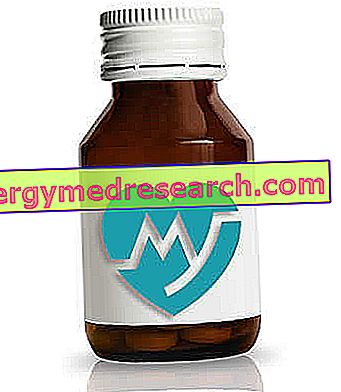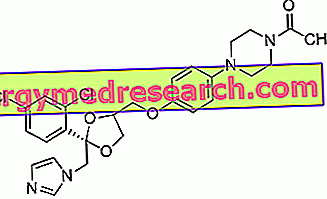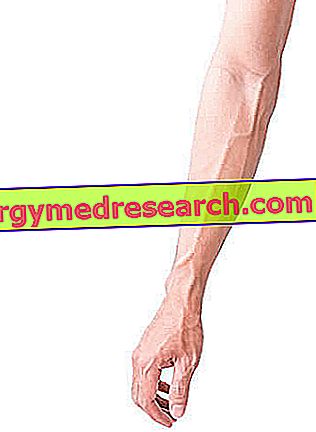Related articles: Sweating
Definition
Sweating indicates an increase in sweat secretion, in regions where sweat glands are present, to control body temperature.
The amount of sweat produced can be influenced by various factors, including feverish conditions, states of weakness, emotional tension, high environmental temperature and intense exercise.
Hot sweating
The hot flashes of menopause are characterized by a sudden reddening of the face and neck, accompanied by profuse sweating. This reaction is the result of hormonal changes (decrease in estrogen production and increase in the follicle-stimulating hormone), which trigger an altered functioning of the hypothalamus, where the body's thermal regulation center resides.
Hot flushes can also occur in males due to a reduction in testosterone in andropause.
Furthermore, hot sweating occurs in patients with prostate cancer or testicles subjected to androgen-suppressive hormone therapy.
Hormonal changes are also significant during pregnancy; in this case, the increase in progesterone is responsible for raising the body temperature and sweating.
In women, an increase in sweat secretion may also occur in conjunction with the premenstrual period.
Other transitory situations that favor this manifestation are the strong emotions and the consumption of spicy or spicy foods.
In some cases, on the other hand, hot sweating is a symptom of a pituitary, hypothalamus or thyroid problem, due to their implications in controlling body temperature. These include, for example, hyperthyroidism, a condition characterized by an increase in sweating associated with heat intolerance, anxiety, palpitation, weight loss and tremor.
Sweating with hot or cold and moist skin is also a symptom of hypoglycemia, a condition that can lead to tremors with feelings of hunger, blurred vision and confusion.
Cold sweats
Cold sweating is a symptom that can occur in critical and potentially lethal conditions, such as myocardial infarction and cardiovascular shock. These events are generally associated with other alarming signals, such as sudden pain or a sense of pressure in the chest, drop in blood pressure, difficulty breathing and loss of consciousness.
However, this manifestation may also be associated with transient and benign disorders, such as states of agitation and indigestion.
Sweating with fever
Bacterial or viral infections characterized by fever often present with a concomitant hot sweat. In sepsis, the febrile state is preceded by chills and followed by profuse sweat secretion.
Other causes
Sweating can be a side effect of some drugs (such as morphine, antipyretics and medicines based on thyroid hormones) and excess alcohol intake. Furthermore, this symptom may indicate the presence of some cancers, such as leukemia and lymphomas.

Enlargement of sweat drops on the skin
Possible Causes * of Sweating
- Alcoholism
- amebiasis
- Amyloidosis
- Unstable Angina
- Angina pectoris
- Anxiety
- Asbestosis
- Panic attack
- Babesiosis
- Beriberi
- Binge drinking
- Brucellosis
- Cistopielite
- cholecystitis
- Alitiasic cholecystitis
- Renal colic
- Heat stroke
- coronary artery disease
- Pulmonary heart
- Dengue
- Diabetes
- Interatrial defect
- dyslipidemia
- Respiratory Distress
- Pulmonary edema
- Pulmonary embolism
- Non-infectious endocarditis
- Pregnancy
- Ectopic pregnancy
- Heart attack
- Respiratory failure
- Insulinoma
- Pulmonary hypertension
- Hyperthyroidism
- Histoplasmosis
- Leukemia
- Malaria
- Toxic megacolon
- Menopause
- Pleural mesothelioma
- miliaria
- Graves' disease - Basedow
- Neuroblastoma
- Thyroid nodules
- Osteoid osteoma
- Pericarditis
- Pneumonia
- Pneumonia ab ingestis
- Porphyria
- proctitis
- Schistosomiasis
- Heart failure
- Sepsis
- Ménière syndrome
- Pickwick syndrome
- Premenstrual syndrome
- Tetanus
- Subacute thyroiditis
- trichinosis
- Testicular cancer
- Cardiac tumors



